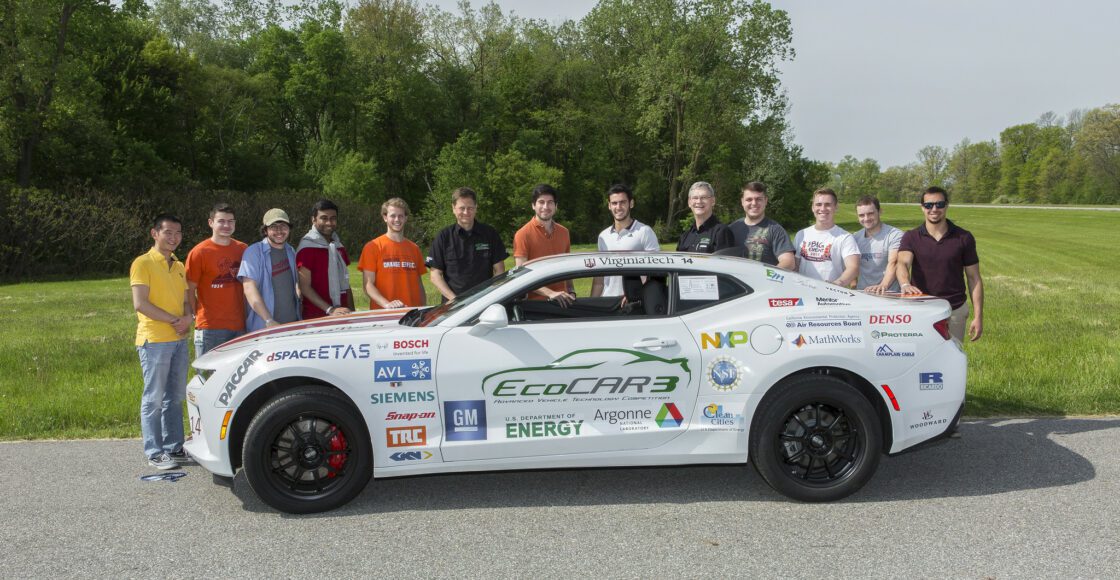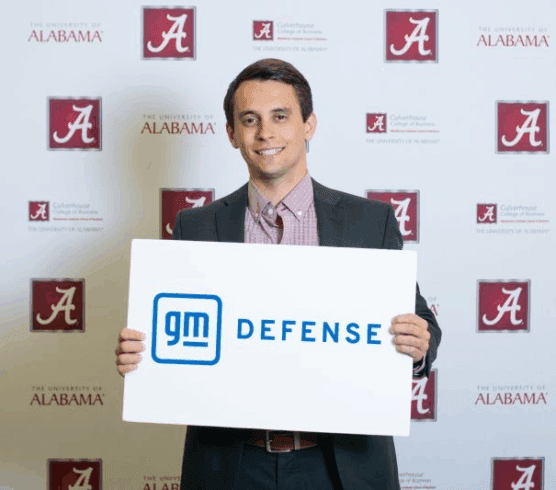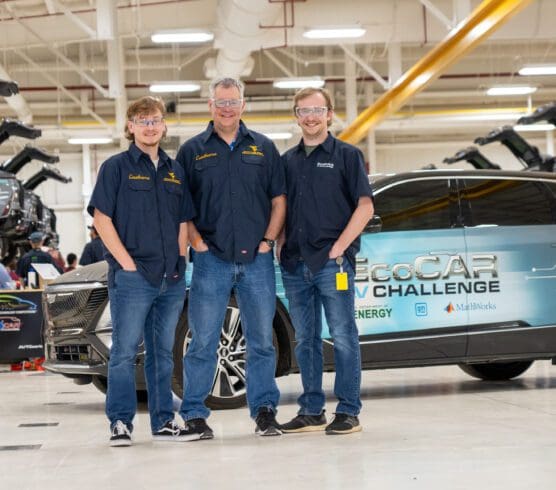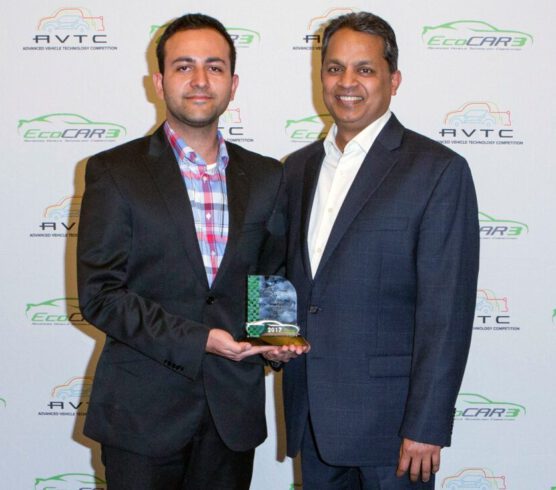On his wedding anniversary in 2009, David Smith took a different kind of plunge when he defended his doctoral dissertation at the University of Tennessee. Having pursued his Ph.D. in mechanical engineering for a decade, David earned the review committee’s approval and three days later joined Oak Ridge National Laboratory as program manager for advanced vehicle systems research.
“It was a series of opportunities and experiences that led me to ORNL, but the journey really started in 1995,” explained David, who is now with ORNL’s Power Electronics and Electric Power Systems Research Center. Then a senior at UT, David was a member of the university’s team competing in the HEV (hybrid electric vehicle) Challenge, a DOE Advanced Vehicle Technology Competition (AVTC).
Since 1988, DOE has sponsored 28 AVTCs—10 multiyear series including the HEV Challenge—in partnership with Natural Resources Canada and the North American auto industry. The intercollegiate competitions are designed to help educate the next generation of automotive engineers and accelerate the development and demonstration of technologies of interest to DOE and the automotive industry.
“HEVs were a new concept at the time, so it was an amazing experience as a student to get hands-on experience working with these technologies,” said David. With HEVs just emerging, the HEV Challenge set unprecedented performance benchmarks and testing procedures that continue to impact industry. When vehicle designs and overall dynamic performance were evaluated, UT won the HEV Challenge that year, defeating more than a dozen fellow university teams.
David as a competitor during the FutureTruck seriesDavid eventually participated in three AVTCs under the FutureTruck series, serving as graduate student team leader for controls in his last year of competition. His participation led to other research opportunities and eventually a two-year run working for Ford in Detroit. Several years prior to joining ORNL, David also worked for Sentech, providing technical and strategic subcontract support to DOE’s Vehicle Technologies Program.
“The competitions opened my eyes to the career I wanted to pursue and provided exposure and connections to world-class organizations,” explained David, one of many ORNL researchers who has benefitted from the DOE-sponsored student competitions.
As a UT senior studying mechanical engineering, Scott Curran joined the competitions in 2007 during the Challenge X series. UT was among 17 university teams selected to redesign a Chevrolet Equinox SUV to minimize energy consumption, emissions and greenhouse gases while maintaining or exceeding the vehicle’s utility, safety and performance.
Scott brought to UT’s team both technical and outreach experience gained through undergraduate projects involving biodiesel and small engines research. After focusing that year on both aftertreatment research and strengthening outreach efforts, Scott went on to serve as graduate student team leader for UT’s Challenge X team in 2008.
“Challenge X allowed me to think outside the box. For the first time I could see research and development from a systems perspective, beyond a single aspect of vehicle design or performance,” said Scott. “The competitions also proved to me how important it is for researchers to assist the public in understanding the impact of research on everyday life,” he added, emphasizing the role of outreach in cultivating interests in science, technology, engineering, and mathematics.
Scott, standing far left, served as graduate student team leader for UT’s Challenge X team in 2008After the competitions, Scott based his master’s thesis on the evaluation of on-road emissions of student-produced biodiesel using the UT Challenge X vehicle. In 2009, he began a postgraduate position at ORNL through the Fuels, Engines, and Emissions Research Center and also began supporting the ORNL fleet manager for the Sustainable Campus Initiative. After spending nearly three years in the position, Scott became a full-time researcher with ORNL in 2011 and now works on advanced combustion, engine efficiency and alternative fuels projects.
Today, through their continuing relationships with UT, David and Scott participate in the current AVTC series in an advisory capacity. An adjunct professor at UT, David is co-faculty advisor to the university’s EcoCAR 2 team and teaches a modeling, simulation, and controls class each semester. Scott, who maintains research staff privileges at UT, serves as co-outreach advisor to the team. For the last year, both worked closely with the 21-member team and cheered them on as they completed the first year of EcoCAR 2 competition ranked 6th. Both also look forward to working with new UT teams in the next two years of the EcoCAR 2 series and future DOE-sponsored competitions.
“The DOE competitions demand industry-level performance out of students who in turn deliver results that benefit everyone,” said David. DOE and industry sponsors not only receive a wealth of solid research but also get to know first-hand the highest caliber of students coming out of school. He added, “While many students receive job offers, they all come out winners with incredible experiences and new connections that will help guide them in the future.”
Special thanks to ORNL for contributing this article, which originally appeared in the organization’s newsletter.




